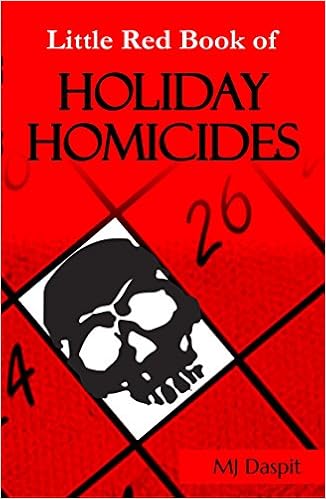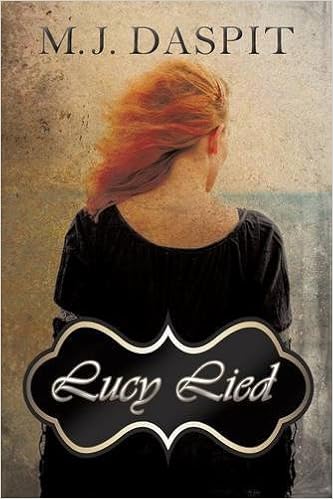A few months ago
I posted an interview with M.J. Daspit, a fellow author from Fireship
Press. We featured her novel Lucy Lied,
a historical crime drama set in late 19th century California. Today
she joins us to discuss her latest collection of murder mystery stories Little Red Book of Holiday Homicides.
MJN: Tell us about the genesis of this collection of short
stories. Did you plan it as a collection and write them in a particular
sequence? I'm asking because very often such collections start as a string of
loose pieces published in various journals.
MJD: I began the Little Red Book of Holiday
Homicides in an attempt to clean out my files. I had been writing mysteries
for years, some as stories and some as full length novels. I’d never done
anything with them, but felt that many of them were good enough to see the
light of day in published form. Only one of the stories in the collection was
originally focused on a holiday, “The Shoe Santa.” And based on that, I
considered making it a collection of Christmas stories exclusively. But somehow
the paradigm shifted to holidays throughout the year and a different sort of
challenge emerged—trying to find holidays for story settings in months like
March and August.
MJN: Your collection reminds me of James Joyce's "Dubliners". A string of stories tied with a theme. Even though Joyce's stories are all set in Dublin, and yours are set in different locations and time periods, there is a common thread. Were you thinking of "Dubliners" while writing your collection?
MJD: I really didn’t think of “Dubliners” but I’m
flattered that you make the comparison. If there is a theme that strings these
stories together, apart from the holiday premise, it would be that they examine
the situation of women and the efforts of a variety of female characters to
take control of their lives in spite of male domination, whether overt or as a
subtle aspect of social consciousness. It’s no accident that the holiday I
chose for August is Women’s Equality Day.
MJN: One thing people don't want to admit to is that Christmas and New Year's are very depressing times from a psychological point of view. The cold temperatures and the lack of sunlight essential to the metabolism of vitamin D, depression and anxiety set in. I view the holidays as a time for artificial, socially forced mirth. When you keep up the fake smile, your psyche can become further destabilized. You can plunge into violence, if you are prone to such outbursts.
MJD: It’s true that some people find Christmas and
New Year’s depressing. Even those of us who enjoy the winter months can find
Christmas in particular quite stressful. Effie Perrine, the heroine of our
story for Christmas is a case in point, since she is evicted from her home by
her step-mother and loses her job at the very time when the holiday is in full
swing. In an effort to come up with a prize winning Christmas story, she
searches out an odd little man she saw running around the streets with no coat
and a basket full of men’s shoes that he intended to send as gifts to his
“children.” She takes him for a kindly Santa Claus figure, only to find out he
isn’t when it’s almost too late.
MJN: One of your stories is set at an English country house where the party is interrupted by a Lord's daughter being fatally poisoned. Are you conscious of the fact that some readers can interpret it as a revenge fantasy against the privileged class?
MJD: The story for January, “The St. Nicholas
Abbey Rum,” takes place in a “Downton Abbey” or “Upstairs Downstairs” setting,
one that inevitably draws attention to the rigid classes of society in England
of the period between the World Wars. Since the daughter of the manor was not
the intended victim of the crime, I feel that seeing her death as a “revenge
fantasy against the privileged class” would be a misreading. That said, it is
the prerogative of each reader to make his or her own inferences and
interpretations. When a writer casts work out into the world, it becomes a
shared intellectual property. Each reader’s reactions are what they are,
reflecting individual taste, circumstances and psychology. I respect that.
MJN: Writing crime fiction takes special talent, one I lack. Writing a historical with a criminal element - I'm referring to your debut novel Lucy Lied - is different from writing a crime novel with a historical setting. While writing this collection of stories, did you engage a different skill set? Or did you use same talents in a different way?
MJD: The skills are essentially the same, but the
focus is different. In Lucy Lied, the crime was just one piece of the
story of an abused woman’s struggle to survive in a relatively hostile
environment. In the stories in Holiday Homicides, the crime is the
central focus, the intellectual puzzle of solving it the main preoccupation of
the writer and, I presume, the reader.


No comments:
Post a Comment